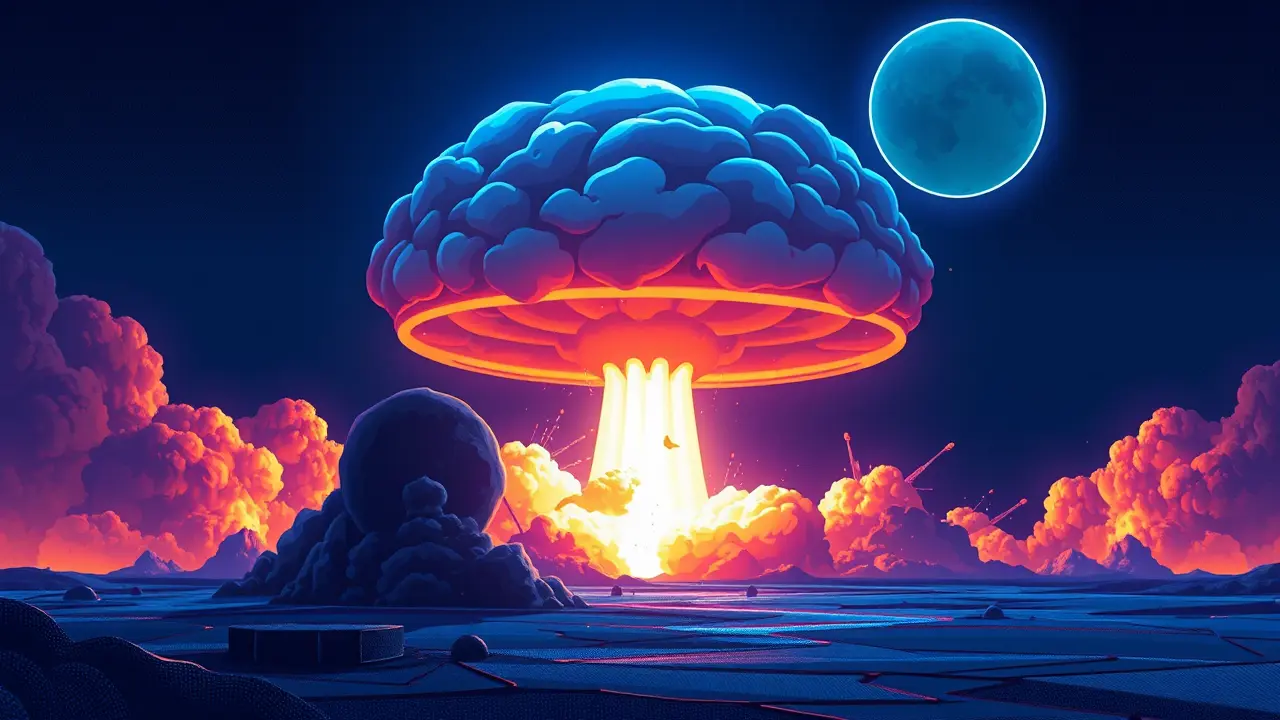
Politicsconflict & defenseArms Deals
Trump's Call to Resume Nuclear Testing Could Fuel US-China Arms Race
RO
Robert Hayes
1 day ago7 min read
The specter of a renewed nuclear arms race, a geopolitical ghost many thought confined to the dustbin of Cold War history, has been chillingly resurrected by former President Donald Trump's recent call to 'immediately' resume testing of nuclear weapons. Citing the rapid nuclear build-up in Beijing and Moscow, Trump's directive to the Pentagon, delivered via social media with characteristic bluntness, aims to place the United States on an 'equal basis' with its strategic adversaries, a move that analysts warn could trigger a dangerous and costly escalation rather than establish a deterrent.This is not merely a policy shift; it is a potential unraveling of decades of delicate, bipartisan non-proliferation efforts. The cornerstone of this fragile architecture, the Comprehensive Nuclear-Test-Ban Treaty (CTBT), though never ratified by the U.S. , has been adhered to by American administrations since the 1990s, creating a de facto global norm against the world-shaking blasts that once defined superpower rivalry.To breach this norm now is to cross a Rubicon of existential risk, signaling a return to an era where technological one-upmanship was measured in megatons and the doctrine of Mutually Assured Destruction was the only thing standing between civilization and annihilation. The immediate consequence, experts contend, would be a predictable and rapid acceleration of China's own strategic modernization programs.Beijing, which has maintained a testing moratorium since 1996, has been steadily advancing its nuclear arsenal from a minimal deterrent to a more robust, survivable force, including the development of hypersonic glide vehicles and new generations of ballistic missile submarines. A resumption of U.S. testing would provide the perfect political and strategic pretext for China to abandon its restraint, justifying a massive expansion and technological leapfrog in the name of national security, thereby creating a classic security dilemma where actions taken for self-defense provoke the very threats they seek to counter.Furthermore, this move would irrevocably shatter any remaining credibility the U. S.holds in non-proliferation forums, empowering other nuclear-aspirant states like North Korea and Iran to openly flout international pressure and likely driving key allies in Europe and Asia to reconsider their own reliance on the American nuclear umbrella. The geopolitical calculus echoes the darkest chapters of the 20th century, reminiscent of the fevered arms build-up between the U.S. and Soviet Union, where each new test was not just a scientific experiment but a stark message of political will and destructive capability.Beyond the geopolitical chessboard, the environmental and human costs cannot be ignored; the legacy of nuclear testing in the American West and the Pacific islands is one of contaminated lands, displaced communities, and lasting health crises, a somber history that this new proposal threatens to repeat. In the final analysis, Trump's call is more than a tweet; it is a potential pivot point, a decision that could fuel a tripartite arms race with Russia and China, destabilize the global order, and force the world to once again learn to live under the shadow of the mushroom cloud, a lesson we cannot afford to relearn.
#featured
#nuclear testing
#US-China relations
#arms race
#Donald Trump
#Pentagon
#strategic forces
Stay Informed. Act Smarter.
Get weekly highlights, major headlines, and expert insights — then put your knowledge to work in our live prediction markets.
Comments
It’s quiet here...Start the conversation by leaving the first comment.
© 2025 Outpoll Service LTD. All rights reserved.